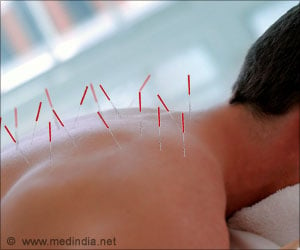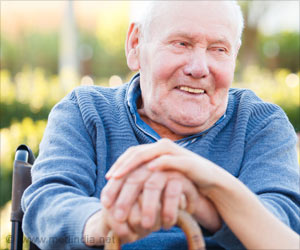Acupuncture is known to slow down memory loss

‘Acupunture, if used for 2 months, 3 times a week, improved scores on memory tests. Treatment was particularly effective if used alongside other dementia drugs’





Scientists have long been divided about the benefits of acupuncture, a discipline which dates back 3,000 years. Critics say its benefits have never been proven, and NHS watchdog NICE earlier this year removed the treatment from a list of recommended therapies for back pain.But others say it is useful technique that should be utilised as much as possible, especially where no other effective treatments exist. The researchers, whose work is published in the BMJ journal Acupuncture in Medicine, reviewed the findings of five previous studies. For the study, Min Deng and Xu-Feng Wang, from Wuhan University in China, reviewed five previously published studies done in 2012 and 2013.
The trials included nearly 600 people with mild cognitive impairment, a type of memory loss that's considered pre-dementia. About 5% to 10% of people with mild cognitive impairment develop dementia each year, the study authors noted.
The researchers concentrated on people who had a specific form of mild cognitive impairment called amnestic. People with this type of impairment are even more likely to develop dementia, the review authors said. The studies compared the benefit of acupuncture alone versus nimodipine. Or, looked at the two treatments together compared to nimodipine alone.
Patients received treatment three to five times a week for eight weeks in four trials. The fifth trial lasted for three months. The combined data from all five trials showed that those receiving acupuncture did better than those on nimodipine alone. They scored better scores on two established tests of cognition - an examination of mental state and a test of picture recognition.
Advertisement
There were several potential limitations of this review. Three trials reported side effects, which for acupuncture included fainting during treatment and slow bleeding at the needle sites. Side effects reported for nimodipine included nausea, constipation and mild headache, according to the report. Although one trial was published in English, all the random control trials were conducted in China, which might implicate publication bias.
British experts last night cast doubt on the findings.
Dr James Pickett, head of research at the Alzheimer’s Society, said “The lack of strong and convincing evidence makes it difficult to reach any meaningful conclusions. On this basis, acupuncture is not the answer to preventing memory problems or dementia.”
Professor Edzard Ernst of the University of Exeter, added ‘This is a perfect example of the “rubbish in, rubbish out” phenomenon which is well-known to authors of systematic reviews - if the primary studies are flawed, the review of such studies will be flawed as well."
Dr. Remy Coeytaux is an associate professor in community and family medicine and an acupuncture researcher at Duke University in Durham, N.C. He was one of the experts reluctant to embrace the review's findings. "The studies suggest that acupuncture is effective, but my degree of confidence in this finding is low, [but] it's not zero," Coeytaux said.
The quality of the studies really was poor, so that puts a damper on the findings, because it's hard to trust the data from the original studies explained Coeytaux. "There is high risk of bias in all the studies," he added.
There is need for a larger, better designed trial to really see if acupuncture can help, he said. However, because there aren't any really effective treatments for memory loss, trying acupuncture is something patients can do. It may not help, but it may not hurt either.
Source-Medindia














